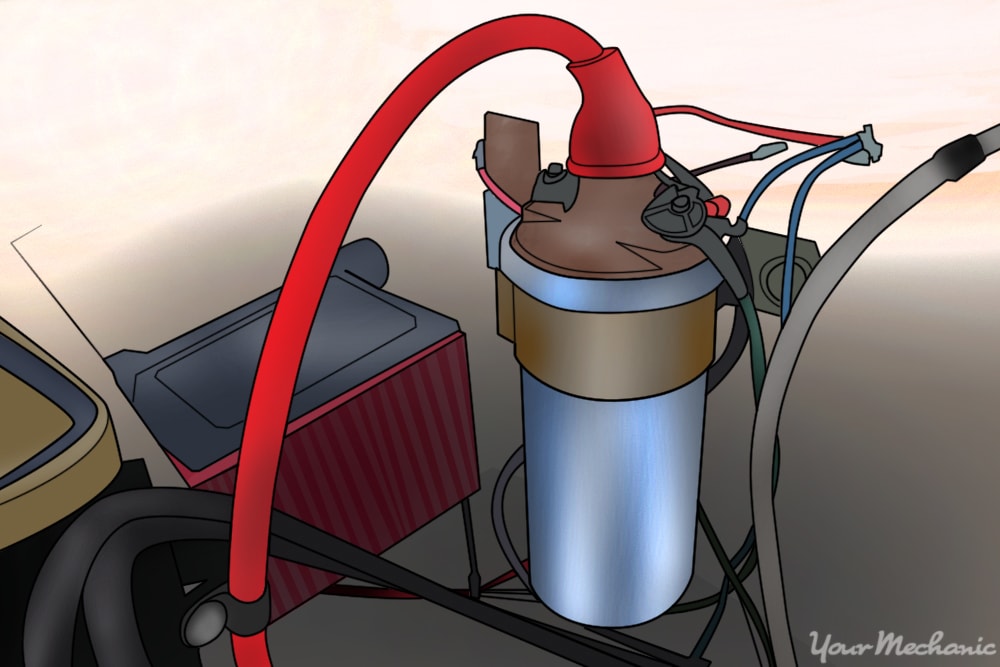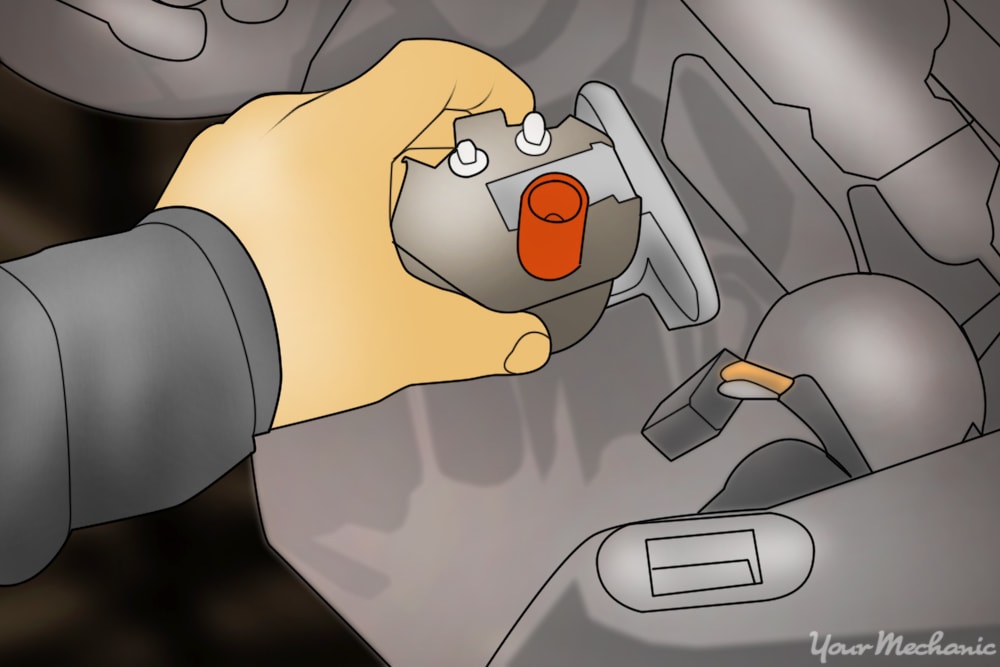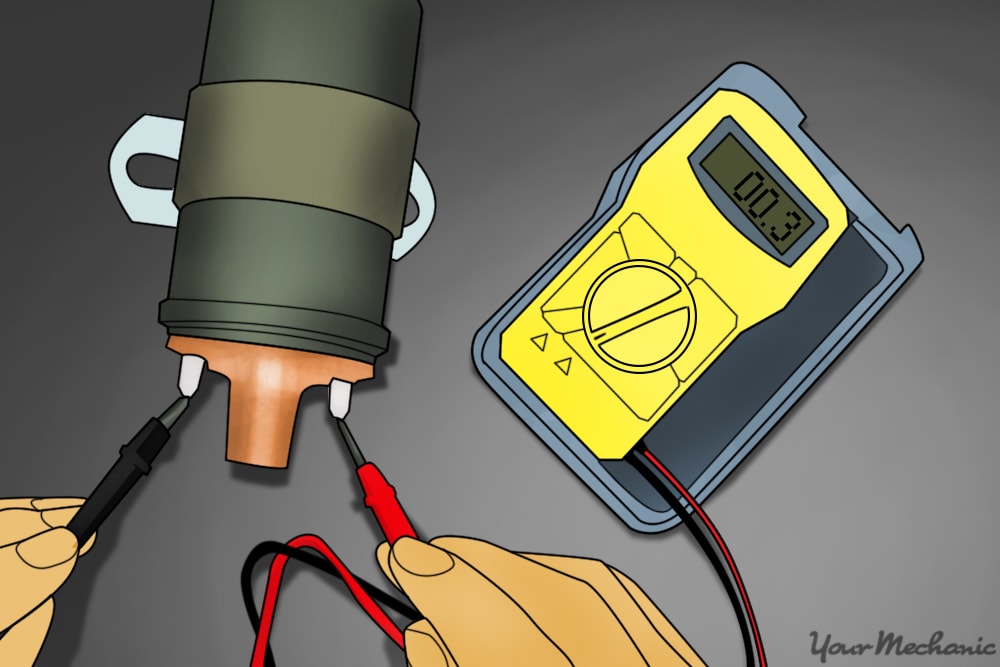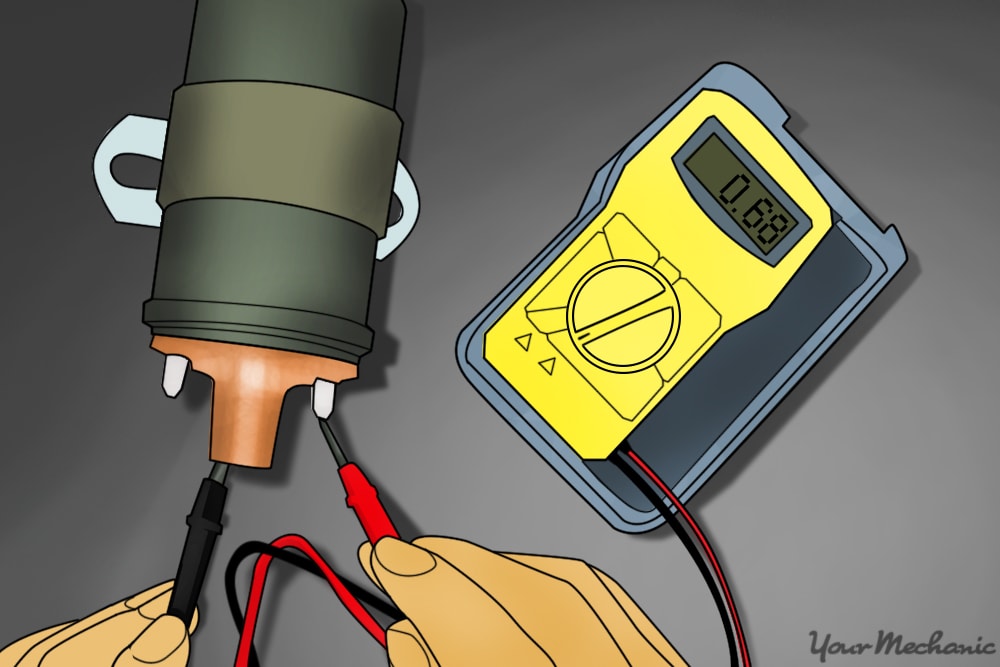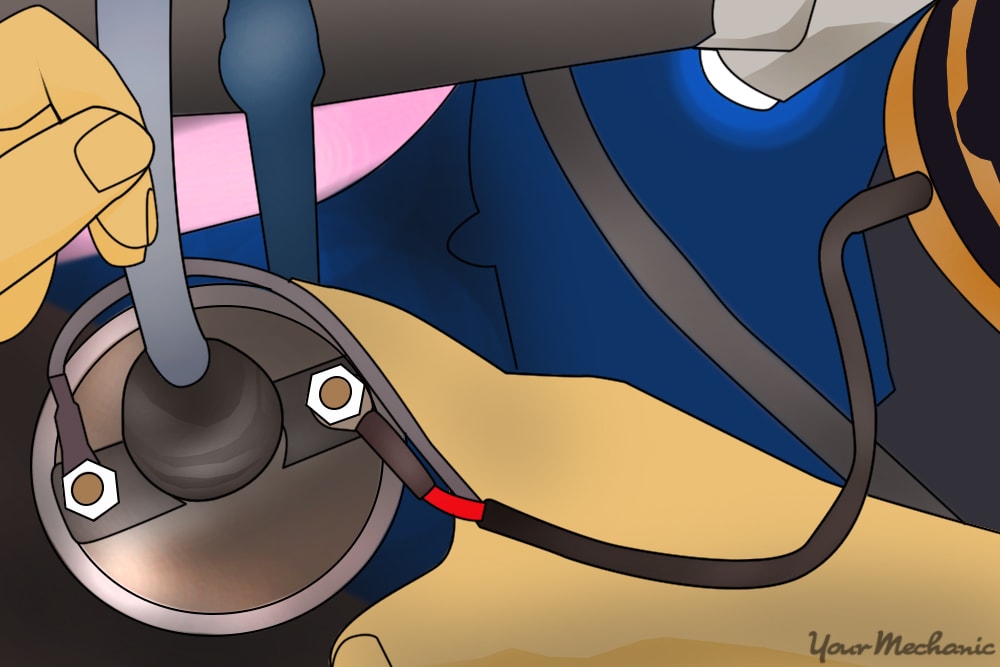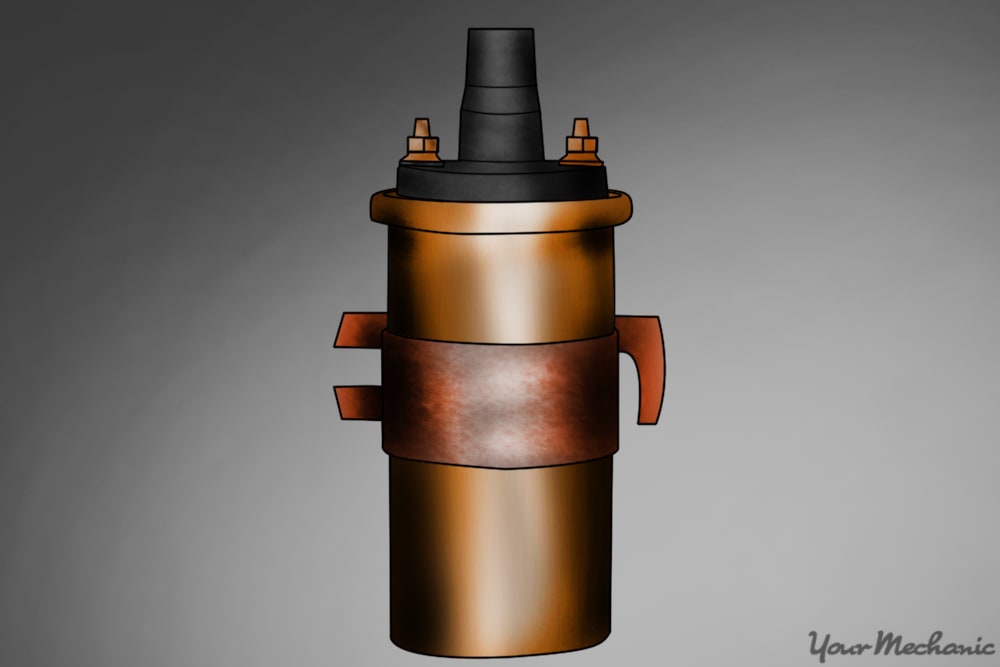

An ignition coil is a vital component of today’s modern engine management system. Virtually all vehicles manufactured today use ignition coils to provide the spark for the engine’s spark plugs. An ignition coil is an inductive coil that is a part of the vehicle’s secondary ignition system. It uses electromagnetic induction to convert the vehicle’s twelve volts into the several thousands of volts required to create a spark powerful enough to jump across the spark plug gap.
Depending on the design of the manufacturer, some vehicles will use one or two ignition coil responsible for the firing of multiple spark plugs, sometimes through low resistance ignition cables. Other designs will use one ignition coil for each individual spark plug, which is bolted right over the spark plugs.
While the purpose and operation of ignition coils is relatively simple and passive in nature, they are in fact a vital component to efficient engine operation — and their malfunction can cause all sorts of problems. A failed ignition coil can show up in several ways, ranging from noticeable decreases in power and fuel mileage to severe engine misfires that can sometimes render the vehicle undrivable. Because of their location (often right on the engine), ignition coils are subject to the harsh conditions of high heat and vibration from engine operation.
Over time, they can burn out or develop increased electrical resistance that can lead to misfires or a weakened, less-efficient spark that will hinder performance. In this step-by-step guide, we will go over how to test whether an ignition coil is good or bad by examining the resistance using a digital multimeter.
Testing an Ignition Coil in 7 Steps
Materials Needed:
Basic set of hand tools (for removal of ignition coil) such as safety goggles and insulated pliers.
Owner’s service manual.
Step 1: Research the specifications. Find out what the correct resistance reading of the ignition coils should be for your vehicle.
These specifications can usually be found in the factory service manual for the vehicle, and are usually specified as a range, measured in “ohms” (symbol: Ω).
Step 2: Locate the ignition coil, or coils, on your vehicle. These are usually located right on the engine, either bolted directly to the spark plugs or mounted remotely somewhere on top of the engine.
If necessary, remove any plastic covers that may be covering the ignition coils.
Step 3: Disconnect the wiring harness for the ignition coils. Remove them using your hand tools.
Ignition coils are usually very simple to remove, often times only held in by one or two bolts.
Step 4: Test the ignition coil’s primary ignition circuit. Ignition coils have two circuits that need to be checked: the primary and secondary ignition circuit.
Connect the positive and negative leads of your multimeter to the positive and negative terminals of your ignition coil. On some coils, the terminals will be explicitly marked positive and negative; others will simply have the two pins or terminals that are located at the connector.
Most ignition coils should have a primary resistance falling somewhere between 0.4 and 2 ohms; however, refer to your manufacturer's specifications for the correct reading. If a reading of zero is displayed, that signifies that the ignition coil has shorted internally in the primary windings and needs to be replaced. A reading over the specification signals that the ignition coil is open, which would also indicate a need to replace the coil.
Step 5: Test the secondary circuit of the ignition coil. Connect your multimeter to the positive terminal or pin of your coil, and to the high output terminal that goes to the spark plug.
Most ignition coils should have a secondary resistance falling somewhere between 6,000 to 10,000 ohms; however, refer to manufacturer specifications for the correct range. If a reading of zero is displayed, that signifies that the coil has short-circuited and needs to be replaced, while an excessive reading signifies that the coil is open, and also needs to be replaced.
Step 6: Repeat the procedure as needed. Follow Step 4 and Step 5 for testing each individual coil if your vehicle has more than one. Ensure that all of the ignition coils are operating correctly.
Step 7: Reinstall the ignition coils, after replacing them as needed. Once all of the ignition coils have been tested, replace any faulty coils, and reinstall the rest of them on the vehicle.
Make sure to reconnect all of the electrical connectors, and reinstall any engine covers or other trim pieces that may have been removed.
Ignition coils are a very important part of the ignition system, and can dramatically affect the engine’s performance when not functioning correctly. A failed coil can cause all sorts of problems, and testing them will ensure that your vehicle stays running in top condition. If you have any difficulty completing the steps to test your ignition coils, be sure to contact a certified mechanic to have a look at them.



